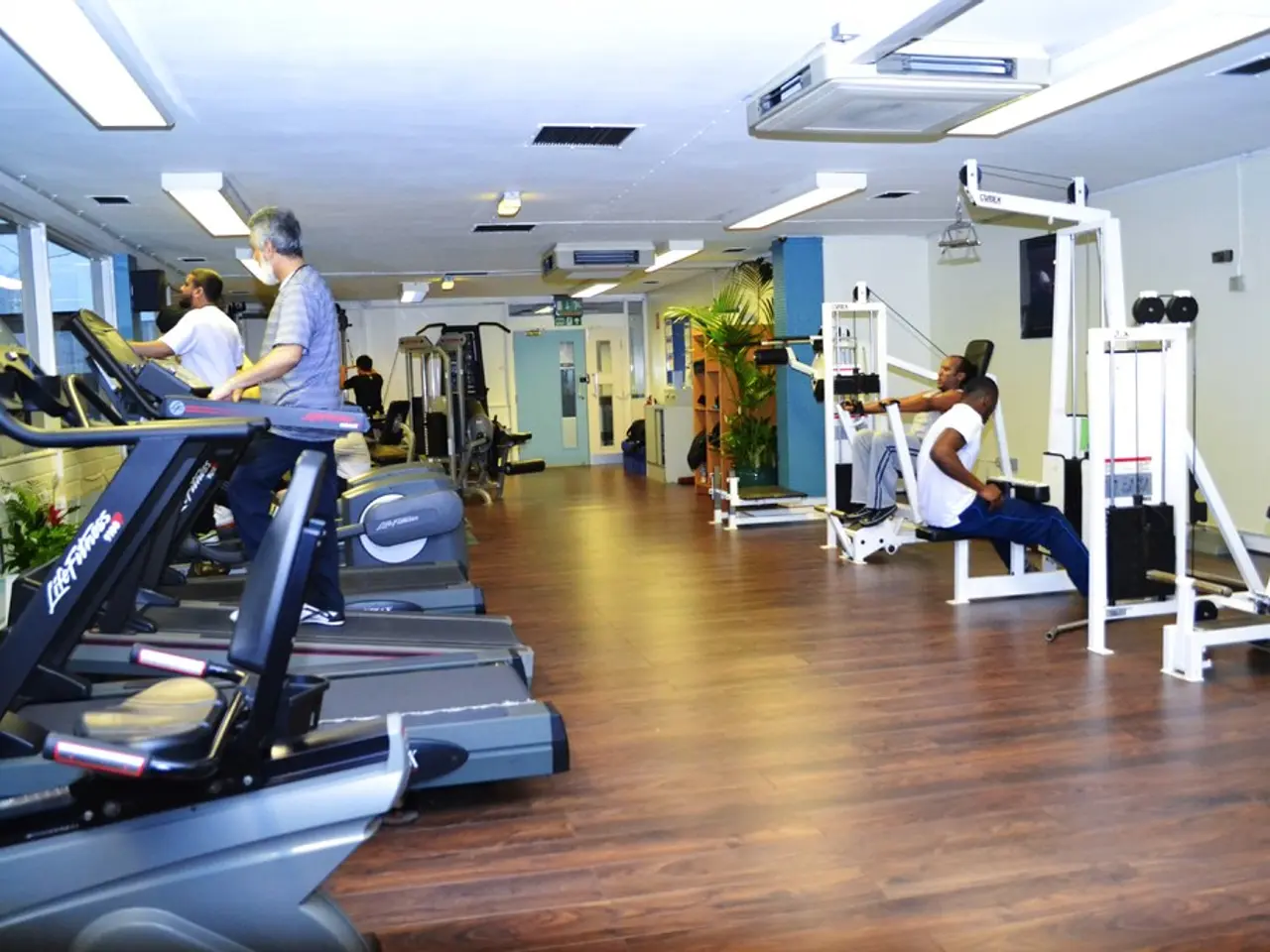The Advantages of Physical and Psychological Well-being through Regular Exercise
In a world where sedentary lifestyles are becoming increasingly common, the importance of regular exercise cannot be overstated. A growing body of evidence links physical inactivity to an increased risk of chronic conditions such as cardiovascular diseases, certain cancers, cognitive decline, and metabolic disorders.
A 2018 report provides strong scientific evidence that physical activity not only delays death from all causes but also serves as both a primary and secondary prevention measure for more than 25 chronic diseases [1].
Regular exercise offers numerous benefits for physical health. For instance, it is associated with a reduced risk of cardiovascular diseases by improving heart health and reducing mortality related to cardiovascular disease [1]. Additionally, exercise serves as a prevention measure for conditions like diabetes and obesity by improving metabolic health and reducing the risk of premature death [1].
Increasing step count, even to as low as 7,000 steps per day, can reduce the risk for most chronic diseases, with further benefits possible at higher levels of activity [2].
Exercise also offers significant benefits for mental health. Regular exercise enhances the release of serotonin, dopamine, and endorphins, which are crucial for mood regulation and reducing symptoms of depression and anxiety [3]. Exercise can lower cortisol levels and reduce the overactivation of the hypothalamic-pituitary-adrenal (HPA) axis, contributing to stress management and improved mental well-being [3].
Moreover, exercise promotes self-esteem, self-efficacy, and social interactions, which can enhance overall mental health by reducing feelings of helplessness and increasing social support [3][4].
Regular exercise can also help decrease both the risk of falls and the risk of injury from falls in older adults. Additionally, it can help improve sleep efficiency, sleep quality, reduce daytime drowsiness, and reduce the need for sleep medication [4].
A combination of physical activity, cognitive activity, and a Mediterranean-style diet may help keep the cognitive manifestations of aging and neurodegenerative disease at bay in older adults [5]. The benefits of physical activity accumulate with modest amounts of moderate-to-vigorous exercise [5].
It's important to note that while exercise can help with chronic pain, more research is needed for a definitive answer [4]. Furthermore, weight loss and maintenance also require a healthful, balanced diet.
In conclusion, regular exercise is a powerful tool in maintaining physical and mental health. Whether it's hiking, gardening, or running, making physical activity a part of your daily routine can have significant, long-lasting benefits for your overall well-being.
[1] https://www.ncbi.nlm.nih.gov/pubmed/30195092 [2] https://www.ncbi.nlm.nih.gov/pubmed/30408174 [3] https://www.ncbi.nlm.nih.gov/pubmed/31733548 [4] https://www.ncbi.nlm.nih.gov/pubmed/32384751 [5] https://www.ncbi.nlm.nih.gov/pubmed/31880751
- According to a 2018 report, physical activity serves as both a primary and secondary prevention measure for more than 25 chronic diseases.
- Regular exercise is associated with a reduced risk of cardiovascular diseases by improving heart health and reducing mortality related to cardiovascular disease.
- Exercise also reduces the risk of premature death for conditions like diabetes and obesity by improving metabolic health.
- Increasing step count to as low as 7,000 steps per day can reduce the risk for most chronic diseases.
- Regular exercise enhances the release of serotonin, dopamine, and endorphins that are crucial for mood regulation and reducing symptoms of depression and anxiety.
- Exercise can lower cortisol levels and reduce the overactivation of the hypothalamic-pituitary-adrenal (HPA) axis, contributing to stress management and improved mental well-being.
- Exercise promotes self-esteem, self-efficacy, and social interactions, which can enhance overall mental health by reducing feelings of helplessness and increasing social support.
- Regular exercise can help decrease both the risk of falls and the risk of injury from falls in older adults, and it can improve sleep efficiency, sleep quality, reduce daytime drowsiness, and reduce the need for sleep medication.
- A combination of physical activity, cognitive activity, and a Mediterranean-style diet may help keep the cognitive manifestations of aging and neurodegenerative disease at bay in older adults, and the benefits of physical activity accumulate with modest amounts of moderate-to-vigorous exercise.




